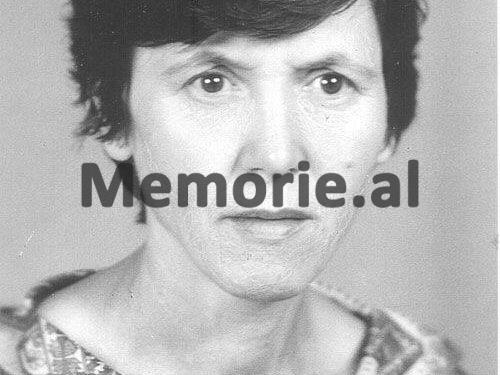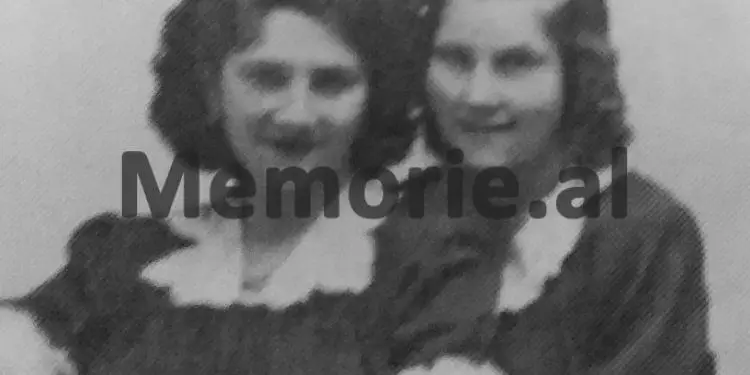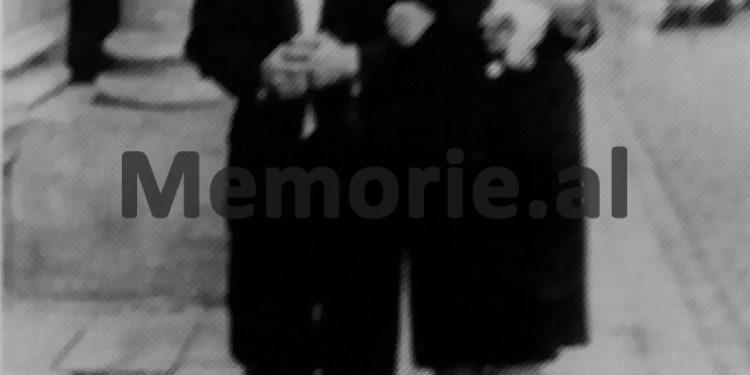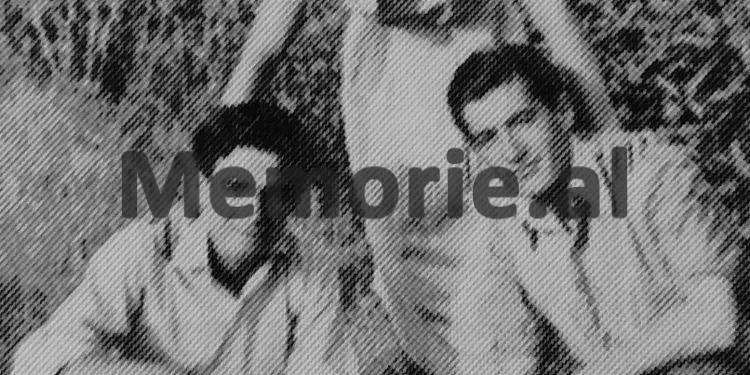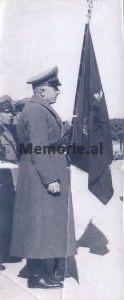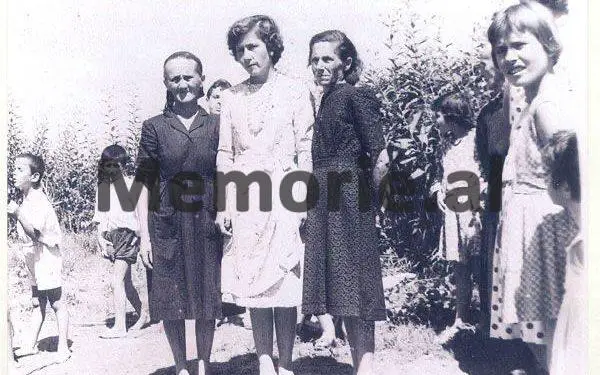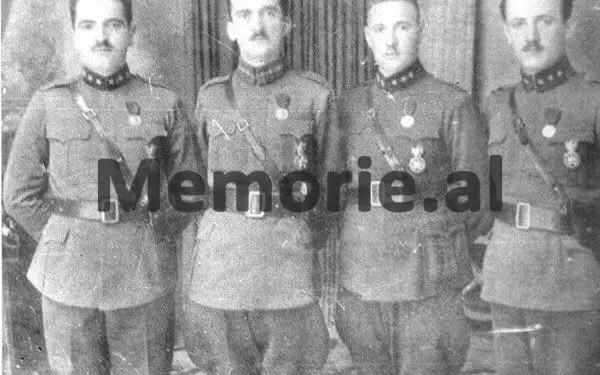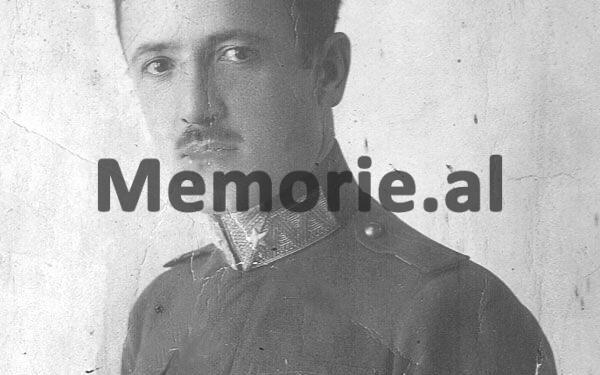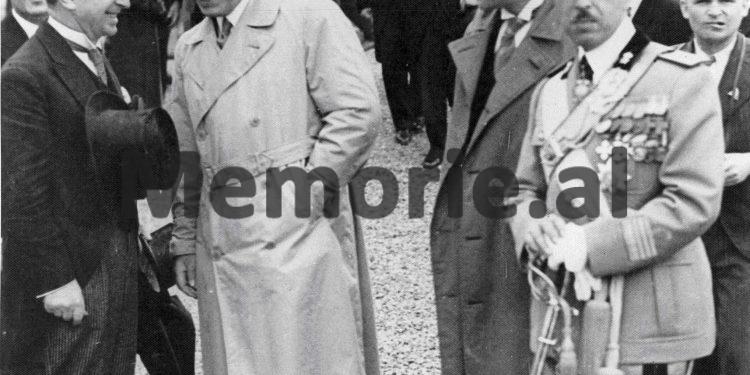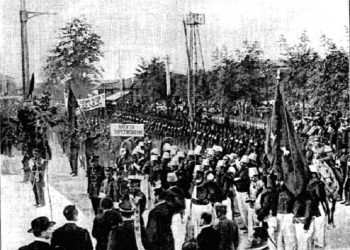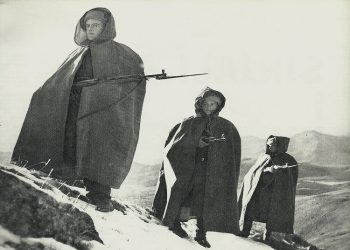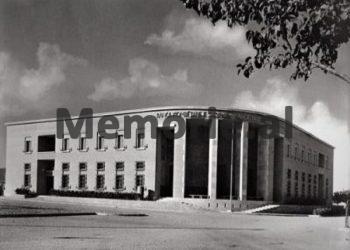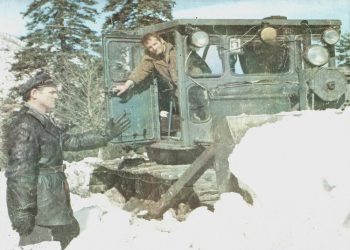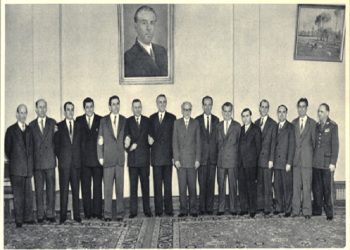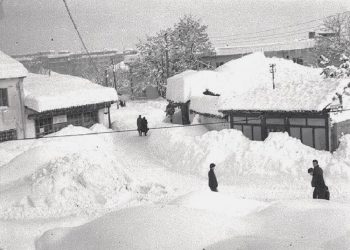Dashnor Kaloçi
Memorie.al publishes the unknown story of the Dema family, originally from the village of Homesh in Zerqan, Dibra district, where one of her most prominent men, Dine Dema, who during the Ottoman rule was declared an enemy by the High Gate of Istanbul and then, together with some of the other men of that family, took part in the resistance against the Serbo-Montenegrin forces that occasionally invaded the Albanian border up to the vicinity of the Dibra district. Testimony of Vera Dema, daughter of Hysni Dema, one of the sons of Dine Dema, who after studying in Vienna, Austria in a two-year military school, returned to Albania and after graduating from the Royal School of Officer Training in Tirana, throughout the period of the Monarchy, served devotedly to King Zog, being one of his most loyal officers with the rank of colonel. The deportation of Hysni Dema to Italy after opposing the Italian fascist military aggression against Albania in April 1939 and his subsequent engagement in the ranks of the Ministry of Internal Affairs with the position of Commander of the Albanian Gendarmerie, which was offered to him by the regency in the period of German occupation of the country. Hysni’s escape to Greece where he also died in 1951 in the Lavros Camp where he remained as a political asylum and the brutal persecution of his family by the communist regime of Enver Hoxha until 1991, when they were released from exile…
“As soon as the communists came to power in December 1944, they started taking revenge on our family, burning down our two-storey mansions with almost 20 rooms of our grandfather, Dine Dema, located in the village of Homesh in Zerqan. After the whole house was destroyed, the head of our family, Dine Dema, was arrested, along with Iljaz Dema, Demir Dema, Mynyr Dema, Sul Dema and Abdulla Dema. After that, the communist forces shot Dinen and Qemali, while Iljaz, after killing him, threw him into the well. Also, in the beginning of November 1944, the partisan forces led by Zija Kambo, came to our house that we had on Saraçëve Street in Tirana and took us out only with our body clothes. The partisan commander said: ‘You, Hysni Dema, have kept this house long enough. From now on, this will be ours, while you go wherever you want. “This is how Vera Dema (Kuca), the daughter of the former commander of the Tirana Gendarmerie, Colonel Hysni Dema, remembered the beginning of the persecution of her family by the communist regime of Enver Hoxha, which recounts the whole ordeal of suffering of her family and tribe, an ordeal that lasted from 1945 until 1990, with the fall of that regime.
Who was Hysni Dema?
One of the most prominent men of the Dema family, or as he was otherwise known and as one of the most famous families of Dibra, was Hysni Dema, who was born on May 17, 1898, in the village of Homesh in Zerqan, where from for years there were also the mansions of that great family. Hysniu was the second son of Dine Dema, who was declared an enemy by the High Gate of Istanbul and thanks to the friendship that Hajredin Dema had in the part of Velika Dibra, he sent his son Hysniu to study in schools. Turkish, where he could be educated in the years 1905-1912. After 1912, Hysniu came to Tirana, where he learned the Albanian language and then returned to Homesh, where his father Hajredini was taking part in the resistance against the Serbo-Montenegrin forces. Given the situation in which their family finds itself, at the age of 15, Hysniu was forced to join the fight with his father to defend the borders from Serbian and Bulgarian attacks. In 1916, Hysni Dema was sent to conduct military studies in Vienna, Austria. After graduating from this school that lasted almost two years, Hysni Dema would continue and some other specializations of various military profiles, which he would complete with high results in 1918. After graduating from these schools, he was returned to Tirana to complete the Officers’ Training School, which was run by the Italian Rudolfi and after graduating from this school, in November 1919, by government decision, Hysni was given the rank of lieutenant and was assigned to serve in The Albanian Army.
In support of Zog
Hysni Dema’s military career grew and he stood out as an officer after the Lushnja Congress, where Hysni became one of the main supporters of the Minister of Internal Affairs, Ahmet Zogu, who at the head of his forces engaged in defense of that congress. In this regard, his daughter, Vera Dema (Kuca) testified: “The events of March 1920, where the Minister of Interior, Ahmet Zogu, undertook a military incursion in the protection of the northeastern borders from Yugoslav provocations. Our father, Hysniu, who was joined by hundreds of armed volunteers from Dibra, also took part in these incursions. in Dibër and Kolesjan of Kukës. Hysniu himself fought for three months against the Serbian forces that raided up to the Black Drin “, recalled his daughter, Vera Dema, regarding the beginning of the military career of her father, Hysni Dema and the participation of in the wars against the Serbo-Montenegrin forces. After engaging in fighting against Serb forces in the Dibra prefecture and his leadership skills as an officer, Hysni’s name became famous in all military circles of the country. Based on this in 1921, he was again appointed at the head of several military units that went to suppress the rebellion of the so-called “Autonomous Province of Mirdita” led by Gjon Marka Gjoni. In this campaign, Hysni Dema, collaborated with Ali Riza Kolonja and for the success achieved in those military operations, he was promoted to ‘second captain’ and had other privileges in military life, while the Minister of Interior, Ahmet Zogu, appointed him him in the function of the District Commander of Dibra. During this period, the name of Hysni Dema, in the district of Dibra, became known for another fact, as he dealt with the extinction of bloodshed and numerous enmities in this province. Dema would hold the post of District Commander of Dibra until 1924, when opposition forces led by Fan Noli, Luigj Gurakuqi, etc., engaged in the June Movement, overthrowing the government led by Shefqet Vërlac. At this time when many of his friends fled into exile after Zog, Hysni Dema, did not flee the country, but fled to the mountains, hiding in various areas of Dibra. Given this situation where he was, from time to time he had armed clashes with the newly fanatized forces in power, which had declared Hysni wanted, along with other members of his tribe. In December 1924, when Zogu returned to Albania, the Dema family led by their first, Hajredini, would support his arrival, providing him with a way to Tirana. As a sign of gratitude, Zogu gave Dine Dema the rank of major in reserve, while he appointed Hysni as the deputy commander for the South of Albania. Being in this post, he also cooperated with a part of the Chamerian parish, supplying them with weapons, money and clothes, to help them from the violence and persecution of the Greek chauvinist circles. Seeing the miserable situation of the Cham population, especially on the border with Konispol, he did not disarm the rural population of that area, leaving them with weapons for self-defense. For this fact, he enjoyed the great gratitude and respect of that area and in 1928, King Zog, awarded him the “Officer of the Order of Skanderbeg” decoration, promoting him as ‘first captain’. Throughout the Monarchy, Hysni Dema, along with other military men, such as Muharrem Bajraktari, Fiqiri Dine, and Preng Previzi, served King Zog with devotion and loyalty.
Exile of Hysni Dema in Italy
Throughout the period of the Zog Monarchy, the Dema family was known as one of the loyal supporters of King Zog and in all the various ceremonies that were organized in Tirana, the Dema family was the special guest from the Royal Court and it was mainly represented by Dine Dema, father of Hysni. In April 1939, when Italy carried out the fascist aggression against Albania, Dine Dema together with Cen Elez, organized the volunteer forces of their province, and on April 8 they left to fight in Durrës. Lieutenant Colonel Hysni Dema also took a strong stance against the Italian occupation and because of this, he was interned in Coliforito, Perugia, Italy, along with many other nationalists who opposed and came out openly against the Italian military aggression against Albania. Before being exiled to Italy, by special decree of Francesco Jacomoni, (Viceroy of King Victor Emmanuel III) Hysni Dema was expelled from the Albanian National Army. In this decree of Jakomon, among other things, it was written: “In the virtue of the authority delegated to us, after seeing the Decision of the Disciplinary Council for the Officers of the Albanian Army, dated August 8, 1939, by which Lieutenant Colonel Hysni Dema did not take the oath of the loyalty of Sovereign Augustus, and therefore found in exile, is always declared to hold the rank of officer. Tue saw that from the acts it results unquestionably and provably that Lieutenant-Colonel Hysni Dema, has made serious disciplinary and anti-honor absences, for which he has been left with the rank of Army Officer. For this we have decreed the loss of the rank of Lieutenant Colonel of the Royal Army “. Tirana, August 29, 1939. Francesco Jakomoni.
In the war against the Italians
After being released from exile and returning to Albania, Hysni Dema went to his village in Homesh and in early 1943, contacted Cen Elez, Muharrem Bajraktar and Halil Alia, and together they decided to mobilize Dibra volunteers in the resistance against Italian invading forces. In this context, Hysniu himself created a nationalist gang which fought several battles against Italian forces, in the area of Dibra, Luma, and up to Lura. Based on the authority enjoyed by Hysni Dema in the leaders of the Dibra parish, on September 6, 1943, he participated in the meeting held with the leaders of the Yugoslav National Liberation Army for Macedonia and those of Enver Hoxha’s National Liberation Army, represented by Sotir Vulkani and Esat Ndreu. In this meeting held in the mountains of Dibra, together with Hysni Dema participated and other leaders of the Dibra parish, such as: Cen Elezi, Ali Maliqi, Xhevdet Kumbarçe, Ferik Maliqi, Sheh Aliu, Selim Troci, Muharrem Përvizi and Haziz e Sul Kaloshi. A joint agreement was signed with the communist partisan forces, where for a year all conflicts and various enmities in the entire Prefecture of Dibra would be stopped. From that meeting, a joint headquarters was chosen to coordinate the actions, where Hysni Dema was among its leaders. In the framework of this agreement, Hysniu cooperated closely with other nationalists in the Albanian areas of Macedonia, such as: Xhem Gostivari, Mefail Zajzi, Kadri Saliu, Aqif Reçani, etc. After the capitulation of fascist Italy, in September 1943, like many senior officers of the Albanian National Army, Hysni Dema was called to Tirana by the High Regency and accepted the position of Commander-in-Chief of the Albanian Gendarmerie with the rank of Colonel. He held this position until the end of August 1944, when he resigned together with the Prime Minister, Fiqëri Dine, (his close friend) after the burning of the Kuka neighborhood in Tirana. After resigning, Hysni Dema went to the mountains and fled with some of the other nationalists and in November 1944, together with Muharrem Bajraktar and Fiqëri Dinen, fled Shkodra to the mountains of Dibra and then left. fled to Greece.
Massacre against the Dema family in Homesh
After fleeing Albania to Greece, Hysni Dema, along with many other nationalists, settled in the Lavros camp that had opened at the time with the Anglo-Americans for political asylum seekers coming to Greece from Albania and other communist countries. of the Balkans and Eastern Europe, such as Bulgaria, Romania, Poland, etc. While Hysniu was staying in the camps in Greece, he had left his family in Tirana, who lived on Saraçëve Street. This family consisted of his wife and 5 children, Aliu, Vera, Sazani, Tefta and Rudina, who had just been born. In addition to his family, he had left his brothers and sisters in Homesh, Dibra. Regarding the attitude of the communists towards the Dema family, the daughter, Vera, recalled: “As soon as the communists came to power in December 1944, they started taking revenge on our family, burning our two-room 20-room mansion of our grandfather, Dine Dema. After the burning of the house which was razed by the communists, all the men of the family were arrested immediately, such as: Dineja, Iljazi, Mynyri, Demiri, Sula and Abdullai. They were locked up in Peshkopi prison under strict security measures. Qerim and Ismail Dema were immediately executed, while Iljaz, after being killed, was thrown into a well. The prisoners, led by Dine Dema, were tried and sentenced to death. The night before the execution, Dineja, wanting to save the rest of the men of the tribe from death, killed the guard and blew up the prison. But during the escape, he could not leave because of his age and said to the other men: ‘Run away because I have eaten my pasture’. “But the forces of the People’s Defense Division pursued and killed Dina, along with his son-in-law Rizvan Murrhja and their loyal Halit Prifti,” recalled Vera Dema, a distant event in 1945, when the communist regime arrested, imprisoned and shot some of the men of Hysni Dema’s family who were then in the Llavros camp in Greece.
Persecution of the Dema family
Before the massacre of Dine Dema’s family in Homesh, Dibra, the rest of the family in Tirana would face inhuman treatment by the communist regime that had just come to power. Regarding this aspect, Vera Dema recalled: “Since the beginning of November, when Tirana had not yet been liberated, the partisan forces commanded by Zija Kambo, came to our house on Rruga e Saraçëve and took us all out, only in our clothes. Their commander told us: ‘You’s Hysni Dema’s family have kept this house long enough. Now it’s up to us as you go wherever you want.’ I, along with Ali, Sazan, and Rudina, went to the house. of Shaqir Muçë, the husband of our sister, Tefta, where we stayed for about 6 months and then we were all interned in Berat.On December 27, 1946, I was arrested, forging my age, as I was small and based on I was not allowed to be arrested after being held for eight months in the detention center, where I was tortured by tying me with ropes and crashing down stairs. I was sentenced to two years in prison because they wanted me to tell them where the father was hiding and sought his correspondence with the clergy Catholics of Shkodra. I did not even know who the clergy were called. After I was released from Berat, we were brought to Kamza, to the internment camp, and after that we were taken to the terrible camp in Tepelena, where we stayed until 1954. Meanwhile, until 1948, the mother together with her two small children, i kept isolated in the castle tower of Kruja. “After the closing of the Tepelena camp, we were reunited as a family and sent to internment in the villages of Plug, Gradishtë, Gjaza, Savër, etc., where we would stay until the fall of the communist regime in 1991”. Vera Dema, the daughter of Colonel Hysni Dema, (who died in 1951 in the Lavrio camp in Greece), regarding the brutal persecution of them for almost half a century by the communist regime of Enver Hoxha./ Memorie.al




